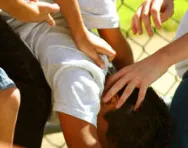TheSchoolRun.com closure date
As we informed you a few months ago, TheSchoolRun has had to make the difficult decision to close due to financial pressures and the company has now ceased trading. We had hoped to keep our content available through a partnership with another educational provider, but this provider has since withdrawn from the agreement.
As a result, we now have to permanently close TheSchoolRun.com. However, to give subscribers time to download any content they’d like to keep, we will keep the website open until 31st July 2025. After this date, the site will be taken down and there will be no further access to any resources. We strongly encourage you to download and save any resources you think you may want to use in the future.
In particular, we suggest downloading:
- Learning packs
- All the worksheets from the 11+ programme, if you are following this with your child
- Complete Learning Journey programmes (the packs below include all 40 worksheets for each programme)
You should already have received 16 primary school eBooks (worth £108.84) to download and keep. If you haven’t received these, please contact us at [email protected] before 31st July 2025, and we will send them to you.
We are very sorry that there is no way to continue offering access to resources and sincerely apologise for the inconvenience caused.
How your Year 7 child develops

You’ve bought the uniform and the new school bag, but are you prepared for how the transition to secondary school will change your child? As they enter Year 7, they need to do a lot of growing up in a short space of time, and your support is crucial to see them through this time of change.


Download Year 6 to 7 transition packs
- English & Maths transition packs
- Practise journalistic writing, figurative language, persuasive text and more
- Revise key maths methods and concepts
What's going on in there?
At age 11 to 12, most boys and girls are in the midst of puberty. As well as the physical changes, you’ll also notice more hormonal behaviour from your child. They’re likely to be moody and tearful and can be difficult to live with. They also have lots of worries connected with starting secondary school, and may take them out on you.
Year 7 is the age of independence for many children; they’re probably tackling the journey to school on their own for the first time, and being more self-reliant in general. But they’re likely to want more independence than you’re happy to give them, and resent being told what to do.
Friendships are very important at this age. Your child is likely to want to belong to several clubs and is very competitive in sports and team games. They’re developing more intuition and insight into other people’s feelings, which makes them a better friend, but they also feel a strong need to conform to their peers’ values, fashions and interests.
Your child also likes to know that their opinions are heard and valued. “Although there will still be times when you need to put your foot down, try to hear your child out before jumping in with advice or instructions,” advises chartered educational psychologist Julia Busch Hansen.
Potential pressure points
Tensions at this age are largely connected to friendships and the transition to secondary school. They include:
- Making new friends, and balancing these with old friendships.
- Adapting to life at a new school.
- Getting used to being the youngest in the school, rather than the oldest.
- Finding their way around the school buildings.
- Coping with a new mode of transport to school, potentially walking alone or getting a school bus.
- Understanding their school timetable.
- Coping with more demanding school work and more homework.
- Bodily and emotional changes connected to puberty.
Warning signs to watch out for
Although your Year 7 child is articulate enough to express their emotions, they’re also likely to be moody and withdrawn at times, which can make it hard to spot if they’re under stress. The signs to look out for include:
- Sleep problems.
- Making excuses not to go to school, such as having a tummy ache.
- Dieting, skipping meals or expressing concerns about being fat.
- Tearfulness or temper tantrums.
- Concealing the signs that all is not well at school, for example hiding bad grades.
- Being worried about text or online bullying.
“Make yourself available during the first few weeks of secondary school,” advises chartered educational psychologist and educational adviser Susan Brooks. “Your child is likely to need lots of support to deal with the changes in routine and expectations.”
Be informed about what your child will be learning at their new school, too – we have guides to what is taught in Year 7 maths, Year 7 English and Year 7 science. Your child is also likely to take Year 7 CATs at the beginning of the school year.








